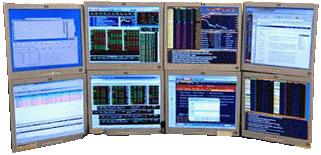Prepared for UN Open Working Group on SDG’s, OWG-5, 6 in Dec 2013 Owg 7,8 in Jan & Feb 2014, solving the special “steering problems” raised there as well with:
- Time for Sustainable Cities to Look Upstream… and
- Getting the incentives right requires redefining the units of measure
This is a serious effort to describe in natural language a well thought out way for a market economy to follow organic systems principles, and decouple from conquering the earth to reorient its development toward finding its secure place on earth. It would be driven by our goal seeking social and economic communities developing new markets and partnerships for mutual benefit as markets always serve to steer the economy, but having much better information on what’s profitable, and recognizing the true cost of inaction. As we find how to do it the economy would also change from building itself up internally to making itself at home externally.
By redirecting our resources from pressing ever harder on the limits of the earth, and instead aim for relieving the strain on ourselves and the earth, the economy would become relatively more profitable than before as it heals. A great many of the key goals of sustainability (SDG’s) being stated again and again at the UN, would be achieved naturally this way. Other critical goals would still take concerted planning and government action, but would become more practical to accomplish.
___________
Incentives to Sustainably Lower Our Global Footprint
- Holistic and accurate measures of ESG costs of production and consumption
- An Information System Everyone can understand, for a Self-managing World
- Turning the economic pursuit from “conquest” to “homemaking”
- “Nature’s Capitalism”, first profiting from building things, then by caring for them
Steering Capitalism with a purpose: giving us a good home on Earth
A. The idea
The natural way economies determine their futures is by “market choices”, as financial, business and consumer markets look for how to get what they want from each other and the earth. Then governments, the press, professions and open societies watch out for the common interest. That’s what designs of the economy of our future, telling developers what new parts to add or old ones replace.
Those market choices often don’t reflect common interests just for our natural lack of information. What was done around the world to deliver goods or services is not collected and passed along as they are paid for, What’s becoming possible is like that, ways to identify future societal costs that business may be held responsible for in the future, practices like adding to global inequities or harming our economic future.

- Comparing comprehensive sustainability balance sheets, for finding development proposals with financially and culturally acceptable risks and benefits. Global benefits/People centered, Homemaking
Just one new fact about money can release a great wealth of information on that. It’s that the “hidden consequences” of using money we don’t immediately see have been scientifically shown to most often be close to “average”[1]. In information terms, that serves to “internalize all externalities”, opening the door to what has eluded us, a way to make sound decisions for the world as a whole.
It would let us build an information system making the choices responsible for impacts transparent for all to see. For example, spending one dollar generally adds about 1 pound of CO2 to the atmosphere. We might select the least cost engineering option for ending our addition of CO2 to the atmosphere as a standard measure, possibly bio-char, estimated to cost $.20 per pound of CO2. That would be equal to an impressive “tax” on GDP, of $.20/$1, an indicator of how poorly the earth’s profits are being used.
People would then clearly see, for example, that as we build more and more for the future economy to take care of, a natural turning point approaches for investors and everyone else, of diminishing total returns. So as growth becomes seen as a drain on future profits, the most profitable use of profits becomes caring for the environments creating the profits, not compounding our demands on them.
[1]Henshaw, J. 2011 Systems Energy Assessment. Sustainability MDPI. http://synapse9.com/SEA – People are “end users” of the consumption economy AND “end servers” of the production economy. The “end producers” for any dollar of goods or services are SO wide spread one must first assume, every dollar is distributed as an average share of GDP and reflects the average impacts of the whole, good and bad.
Continue reading Ideal Model: New Architecture for Economic Self-Governance
